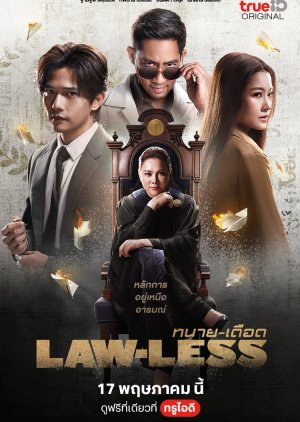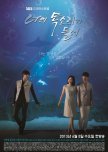
Cette critique peut contenir des spoilers
The Land of Smiles on Trial
If you plan to watch the Thai adaptation of “Lawless Lawyer”, I recommend approaching it with an open mind. This remake does bring something fresh to the table, with more thoroughly developed backstories and a pace that doesn’t feel rushed. While the Korean version wasn’t necessarily hurried, the Thai version takes its time to flesh things out, which is worth noting. That said, there are a few disappointments.The romance, while decent, doesn’t quite compare to the electric chemistry between Joon Gi and Jae Yi in the original. However, since the show isn’t centered on the couple’s relationship, this isn’t a major issue. Namtan and Lee deliver solid performances and carry the show well, exuding an on-screen charm that makes them undeniably engaging. Their acting holds up throughout.
One significant difference I noticed between the adaptations lies in the tone of the characters. In the Korean version, when a character was furious or impassioned, it was impossible to miss—they let you feel every bit of it. Conversely, the Thai adaptation adopts a more subdued approach, reflecting Thailand’s “Land of Smiles” ethos. While this doesn’t derail the plot and allows for a more patient storytelling style, it does impact the intensity of certain scenes, particularly those involving the main villain.
Speaking of the villain, their story was perhaps the most frustrating aspect of the series. While their backstory adds a layer of tragedy, framing them as a quasi-hero, their actions throughout the show make it hard to sympathize with them. The lack of a sincere apology to Win (the male protagonist) or any meaningful consequences for their crimes leaves the ending feeling hollow. The villain and their associates walk away relatively unscathed, and this unresolved arc undermines the emotional payoff.
On the flip side, one of the major villains had a more satisfying resolution, though they, too, left me feeling slightly let down. That said, the actor playing this role did an excellent job, which deserves recognition.
The ending itself is where the Thai adaptation falters most. While I might have understood the ambiguity if it were setting up a sequel, the inclusion of a time skip—marked by a “many years later” title card—suggests otherwise. We see Win and Praw return as celebrated (Bangkok?) lawyers, but so many questions remain unanswered. If the moral of the story was to highlight the futility of fighting a corrupt system, then it succeeded. However, unlike the Korean version, which left viewers with a sense of hope, this adaptation offers little resolution or closure.
Despite its flaws, the Thai adaptation has its strengths. The protagonists are written as genuinely sympathetic, and the actors’ camaraderie on set shines through in their performances. The good guys know when to be ruthless, particularly when acting within the law, which adds to their appeal. Still, the Korean version ultimately comes out ahead for me. While the Thai adaptation held its own for most of the series, the disappointing ending undermines much of what it built along the way.
Cet avis était-il utile?



































